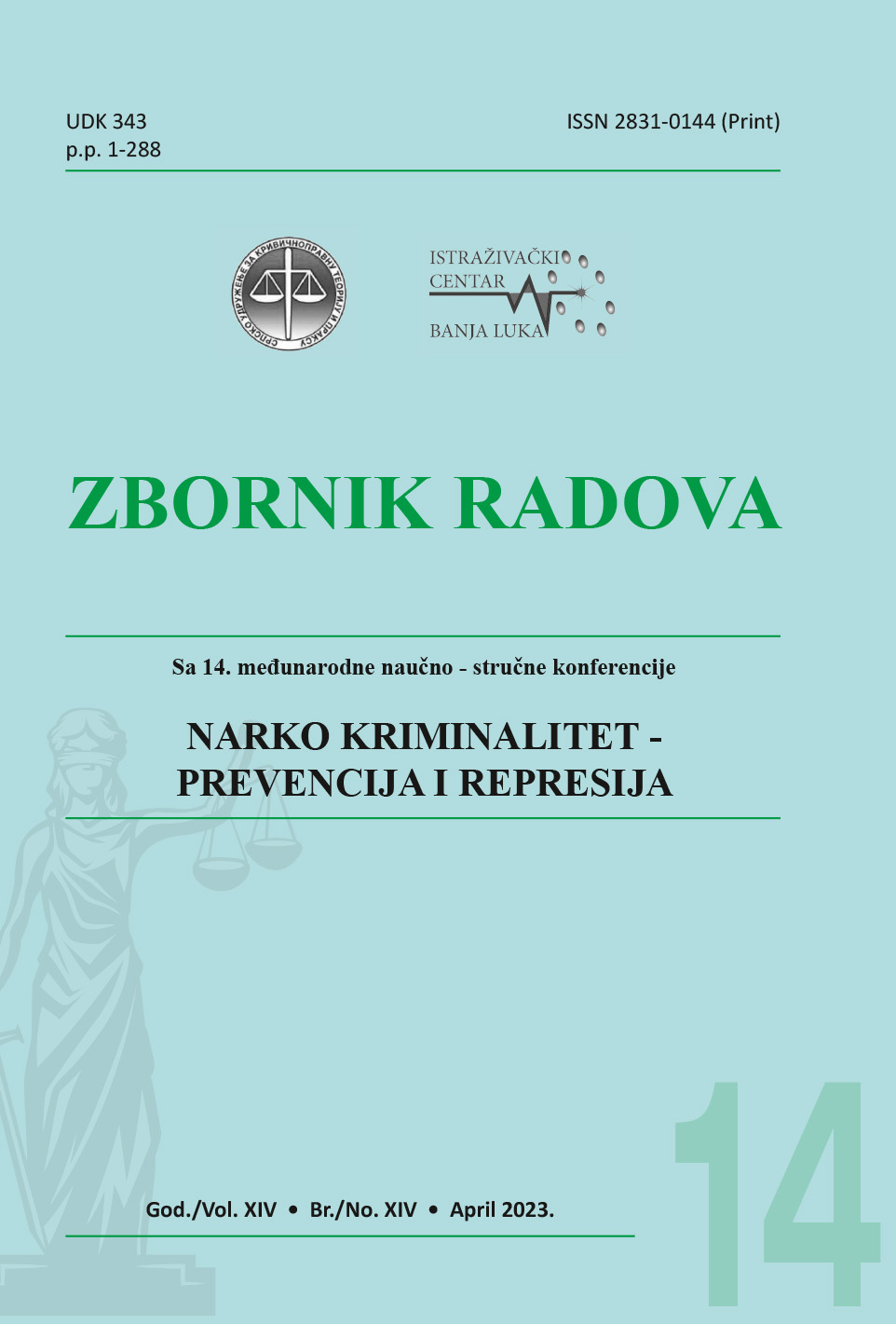DISCOVERING AND PROVING OF CRIMINAL OFFENSES IN THE FIELD OF DRUG ABUSE AND THE CASE LAW OF THE EUROPEAN COURT OF HUMAN RIGHTS AND THE CONSTITUTIONAL COURT OF BOSNIA AND HERZEGOVINA
DOI:
https://doi.org/10.7251/CEST1423175SKeywords:
drugs, abuse, criminal offense, investigation, evidenceAbstract
Consumption and production of drugs inevitably leads to abuse, but also to the cause-and-effect disease of addiction and crime. A problematic area of crime related to drug consumption is the way in which crime in general and drug consumption are interconnected. Previous research on this topic has shown that this interconnection is extremely complex, with an effort to find possibilities for the prevention of crime related to illegal drugs. The need to prevent this crime has always been a high priority of different countries around the world. Creating a policy of this prevention implies the inclusion of several different segments of society, since this problem has different etiological and phenomenological characteristics.
The paper deals with the detection and proving of criminal offenses in the field of drug abuse. The goal is to answer some questions about the complexity of detecting, investigating and proving criminal offenses in this field. The question of the case law of the European Court of Human Rights regarding the trade in narcotic drugs is also opened. The paper further deals more closely with the relevant case law of the Constitutional Court of Bosnia and Herzegovina, especially in the context of the admissibility of evidence used to prove the criminal offense of unauthorized production and trafficking of narcotic drugs.
